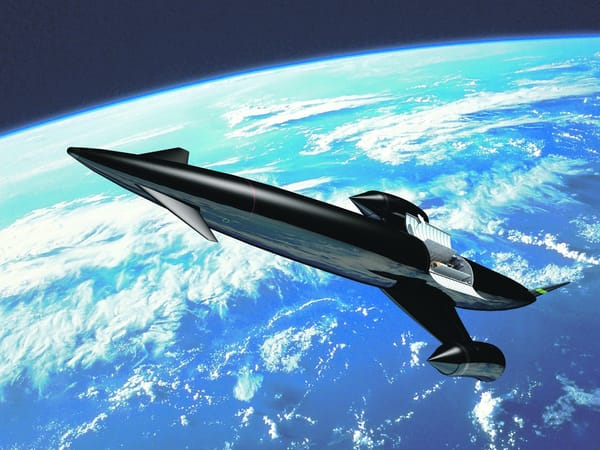Global cooling?
Andrew Purcell queries claims that decreasing solar activity will trigger an ‘ice age’

The last week has seen a flurry of excitement over reports that solar activity may be set to decrease. Climate change deniers have sprung upon this news, with prominent Daily Telegraph blogger, James Delingpole, advocating that we increase greenhouse gas production, in order to mitigate any cooling associated with this decrease in solar activity. In an article, which opens with the words “It’s official: a new Ice Age is on its way”, Mr Delingpole goes on to claim that the news “makes global cooling a much more plausible prospect in the next few decades than global warming”. Mr Delingpole isn’t alone. The Register was also quick to pounce on this news, as was Daily Mail columnist, Richard Littlejohn, who claimed “the world has actually been getting cooler in recent years”.
So, what is the evidence to support these claims? Are we actually heading for a new ice age, or are the climate change deniers on some pretty thin ice?
Well, Mr Littlejohn’s claim is clearly nonsense, as the ten warmest years on record have all occurred since 1998. But, what about the claim that the Earth is about to enter a new ice age? To judge the merits of this claim, we will have to look a little more closely at the science…
The Sun’s activity is cyclical, with the overall strength of the Sun’s magnetic field rising and falling periodically. Each cycle lasts roughly 11 years and we are currently approaching a solar maximum, due in 2013. However, there is evidence to suggest that the next cycle, with its maximum expected in 2022, may be significantly weaker. This prediction was made at a recent meeting of the American Astronomical Society and is based upon observations that a gaseous river, which flows beneath the Sun’s surface, is forming at a slower rate than observed during previous solar cycles. Also, scientists have noted that the average magnetic strength of sunspots has been decreasing in recent years and that coronal activity is unusually low at the moment.
Yet, this doesn’t necessarily mean that we are likely to see a decrease in the effects of global warming and it certainly doesn’t mean that we’re heading for a new ice age. This proposed decrease in solar activity is likely to lead to an average global temperature decrease of between just 0.1 and 0.3 °C. By contrast, anthropogenic global warming is set to cause an increase in average global temperatures of roughly 4 °C by the end of this century.
Similarly, the predicted decrease in solar activity could lead to a 4 per cent increase in polar sea ice. This is – quite literally – a drop in the ocean, especially when one considers the fact that global warming is set to cause a 40 per cent decrease in polar sea ice.
Equally, those celebrating this news as a long-sought-after excuse to keep on burning fossil fuels and driving gas-guzzling cars seem to have conveniently overlooked a few other facts.
For one, there’s the problem of oceanic acidification. Increased carbon dioxide levels will continue to acidify our oceans and destroy coral reefs, even if solar activity becomes significantly reduced. For another, what happens when solar activity returns to normal? Nobody is suggesting that the predicted decrease in solar activity will be permanent, so any reduction in our efforts to tackle global warming would only result in a potentially disastrous ‘double-whammy’ period of warming once this period of low solar activity has subsided.
Such a period of relative cooling may last just the one 11-year solar cycle, but some are predicting another Little Ice Age, such as that experienced from the mid-16th to the mid-19th century. During this period, winters were unusually cold and the Thames froze over regularly.
However, despite widespread claims to the contrary, the links between decreased solar activity and this unusually cold period are not clear. While it is often claimed that the Little Ice Age was caused exclusively by a period of low solar activity, known as the Maunder Minimum, the Maunder Minimum lasted just 70 years, whereas the Little Ice age lasted 300 years. It has been suggested that the Little Ice Age could also have been caused by high levels of volcanic activity, or even a temporary decrease in the functioning of the Gulf Stream.
During the Little Ice Age, the cooling effect is thought to have varied significantly across regions, with Europe having been affected significantly more than North America for instance. Also, while winters were generally much cooler during the Little Ice Age, summers were not as strongly affected. Thus, given that climate change is already predicted to cause the UK to experience more extreme seasonal variation (i.e. warmer summers and colder winters), a return to Little Ice Age conditions could be particularly bad for the UK.
London is roughly on the same line of latitude as Moscow and currently experiences abnormally warm winters – given this latitude – due to the winter-warming effect of the Gulf Stream. If average global temperatures continue to increase, causing ever-greater glacial melt water to continue decreasing the salinity of our oceans, this is likely to lead to major changes in the activity of the Gulf Stream. Thus, winters in the UK will become drastically cooler.
Coupled with a further potential decrease in winter temperatures, caused by decreasing solar activity, this has the potential to be disastrous. Consequently, rather than diminishing the need to tackle climate change, the prospect of decreased solar activity causing cooler winters, serves only to add impetus to the already drastic need to tackle climate change.
On a global scale, if the projected decrease in solar activity does occur, and if it does cause a limited global cooling effect, this should be seen as a temporary reprieve, with the potential to buy us some much-needed time to increase our efforts at reducing global atmospheric CO2 output. It should certainly not be seen – as the climate change deniers would have us believe – as an excuse to do absolutely nothing.
The hypocrisy of the climate change deniers is truly staggering. Quick to refute the overwhelming body of scientifically-sound, peer-reviewed evidence in support of global warming, these so-called ‘sceptics’ have jumped upon these predictions of decreasing solar activity unquestioningly; predictions which were made in provisional form at a small conference in New Mexico and which have not yet been subjected to the rigors of peer review. It is worth bearing in mind that, even if these predictions do turn out to be accurate, the total energy reaching Earth from The Sun is expected to drop by just 0.1 per cent.
In light of this, the crowing of the climate change deniers seems, at best, woefully misguided and, at worst, wilfully misleading. Perhaps unsurprisingly, few of the climate change deniers have made reference in their articles to the fact that Dr Frank Hill, one of the scientists responsible for the predictions, chose to clarify things by issuing the following statement:
“We are NOT predicting a mini-ice age. We are predicting the behaviour of the solar cycle. In my opinion, it is a huge leap from that to an abrupt global cooling, since the connections between solar activity and climate are still very poorly understood. My understanding is that current calculations suggest only a 0.3 °C decrease from a Maunder-like minimum, too small for an ice age. It is unfortunate that the global warming/cooling studies have become so politically polarising.”








